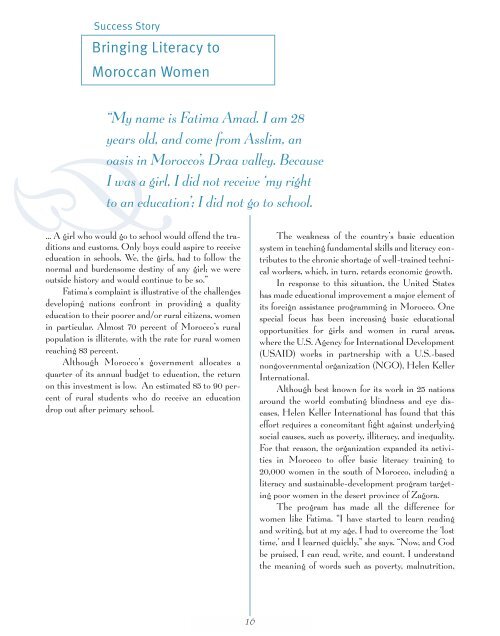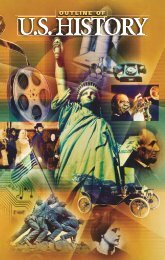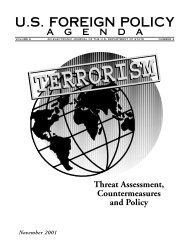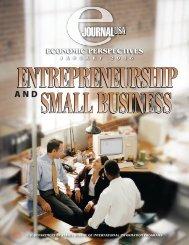Working for Women Worldwide - Embassy of the United States
Working for Women Worldwide - Embassy of the United States
Working for Women Worldwide - Embassy of the United States
Create successful ePaper yourself
Turn your PDF publications into a flip-book with our unique Google optimized e-Paper software.
Success Story<br />
Bringing Literacy to<br />
Moroccan <strong>Women</strong><br />
“My name is Fatima Amad. I am 28<br />
years old, and come from Asslim, an<br />
oasis in Morocco’s Draa valley. Because<br />
I was a girl, I did not receive ‘my right<br />
to an education’; I did not go to school.<br />
… A girl who would go to school would <strong>of</strong>fend <strong>the</strong> traditions<br />
and customs. Only boys could aspire to receive<br />
education in schools. We, <strong>the</strong> girls, had to follow <strong>the</strong><br />
normal and burdensome destiny <strong>of</strong> any girl; we were<br />
outside history and would continue to be so.”<br />
Fatima’s complaint is illustrative <strong>of</strong> <strong>the</strong> challenges<br />
developing nations confront in providing a quality<br />
education to <strong>the</strong>ir poorer and/or rural citizens, women<br />
in particular. Almost 70 percent <strong>of</strong> Morocco’s rural<br />
population is illiterate, with <strong>the</strong> rate <strong>for</strong> rural women<br />
reaching 83 percent.<br />
Although Morocco’s government allocates a<br />
quarter <strong>of</strong> its annual budget to education, <strong>the</strong> return<br />
on this investment is low. An estimated 85 to 90 percent<br />
<strong>of</strong> rural students who do receive an education<br />
drop out after primary school.<br />
The weakness <strong>of</strong> <strong>the</strong> country’s basic education<br />
system in teaching fundamental skills and literacy contributes<br />
to <strong>the</strong> chronic shortage <strong>of</strong> well-trained technical<br />
workers, which, in turn, retards economic growth.<br />
In response to this situation, <strong>the</strong> <strong>United</strong> <strong>States</strong><br />
has made educational improvement a major element <strong>of</strong><br />
its <strong>for</strong>eign assistance programming in Morocco. One<br />
special focus has been increasing basic educational<br />
opportunities <strong>for</strong> girls and women in rural areas,<br />
where <strong>the</strong> U.S. Agency <strong>for</strong> International Development<br />
(USAID) works in partnership with a U.S.-based<br />
nongovernmental organization (NGO), Helen Keller<br />
International.<br />
Although best known <strong>for</strong> its work in 25 nations<br />
around <strong>the</strong> world combating blindness and eye diseases,<br />
Helen Keller International has found that this<br />
ef<strong>for</strong>t requires a concomitant fight against underlying<br />
social causes, such as poverty, illiteracy, and inequality.<br />
For that reason, <strong>the</strong> organization expanded its activities<br />
in Morocco to <strong>of</strong>fer basic literacy training to<br />
20,000 women in <strong>the</strong> south <strong>of</strong> Morocco, including a<br />
literacy and sustainable-development program targeting<br />
poor women in <strong>the</strong> desert province <strong>of</strong> Zagora.<br />
The program has made all <strong>the</strong> difference <strong>for</strong><br />
women like Fatima. “I have started to learn reading<br />
and writing, but at my age, I had to overcome <strong>the</strong> ‘lost<br />
time,’ and I learned quickly,” she says. “Now, and God<br />
be praised, I can read, write, and count. I understand<br />
<strong>the</strong> meaning <strong>of</strong> words such as poverty, malnutrition,<br />
K<br />
16












